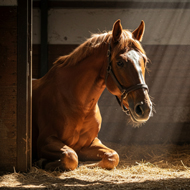Birmingham facing ‘cat crisis’ as charity overrun
Tiger-Lily arrived at the RSPCA heavily pregnant, before giving birth to nine kittens.
The RSPCA has warned of a ‘cat crisis’, as its Birmingham-based animal centre reaches capacity with cats and kittens.
The charity’s Newbrook Farm Animal Centre and Hospital, in Frankley Green, is currently responsible for 474 cats and kittens. This includes 69 cats at the animal centre, 27 in foster homes, 300 in private boarding and 78 cats in its hospital.
It is believed to be the result of so-called ‘kitten season’, which occurs from May to September. This is when it most litters of kittens are born, resulting in charities across the country seeing an influx of cats and kittens coming into their care.
However in some locations, such as their Birmingham premises, the RSPCA is seeing an unprecedented number of cats.
One intake included Tiger-Lily, a heavily pregnant stray who came to the charity in July. Although she was microchipped, her details were out of date and staff could not trace an owner.
A few weeks arriving, Tiger-Lily gave birth to a litter of nine kittens.
Emma Finmore, cattery supervisor, said: “We try to place nursing queens into foster homes to prevent spaces being blocked for weeks until the kittens are old enough.
“Obviously these won't be ready for adoption for another nine weeks so if we can place them in a foster home this allows us to free up the space and help more cats that need to come in.
“It's best for the nursing queen and the kittens to be in a loving foster home too, receiving around the clock care and socialisation in a home environment.”
This is a particularly challenging time for cat rehoming, since there is often a reduction in cat rehoming during the summer holidays. This is believed to be due to families going away on holiday.
Ms Finmore said: “It feels like we’re facing a cat crisis with more cats coming in than we can find homes for - so we need people’s help.
“In particular, we have quite a lot of nursing cat mums and young kittens, who aren’t old enough for adoption yet, and so we are desperately looking for foster homes for them to help free up space in our cattery for other cats who can be rehomed.”
Fosterers are provided with all the necessary equipment and veterinary care by the RSPCA. They will also have the support of RSPCA staff when needed.
For more information, visit the RSPCA website.
Image © RSPCA



 Zoetis UK has called on horse owners to complete a short online survey about their horse's behaviours.
Zoetis UK has called on horse owners to complete a short online survey about their horse's behaviours.